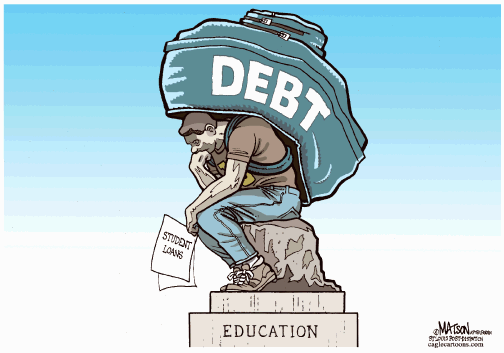In light of Gawker’s bankruptcy, I read an old New Yorker profile of Peter Thiel. This stuck out:
Thiel believes that education is the next bubble in the U.S. economy. He has compared university administrators to subprime-mortgage brokers, and called debt-saddled graduates the last indentured workers in the developed world, unable to free themselves even through bankruptcy. Nowhere is the blind complacency of the establishment more evident than in its bovine attitude toward academic degrees: as long as my child goes to the right schools, upward mobility will continue. A university education has become a very expensive insurance policy—proof, Thiel argues, that true innovation has stalled. In the midst of economic stagnation, education has become a status game, “purely positional and extremely decoupled” from the question of its benefit to the individual and society.
It’s easy to criticize higher education for burdening students with years of debt, which can force them into careers, like law and finance, that they otherwise might not have embraced. And a university degree has become an unquestioned prerequisite in an increasingly stratified society. But Thiel goes much further: he dislikes the whole idea of using college to find an intellectual focus. Majoring in the humanities strikes him as particularly unwise, since it so often leads to the default choice of law school. The academic sciences are nearly as dubious—timid and narrow, driven by turf battles rather than by the quest for breakthroughs. Above all, a college education teaches nothing about entrepreneurship. Thiel thinks that young people—especially the most talented ones—should establish a plan for their lives early, and he favors one plan in particular: starting a technology company.
Food for thought, hm? I don’t know about that technology company angle, but education as a bubble? How now!


